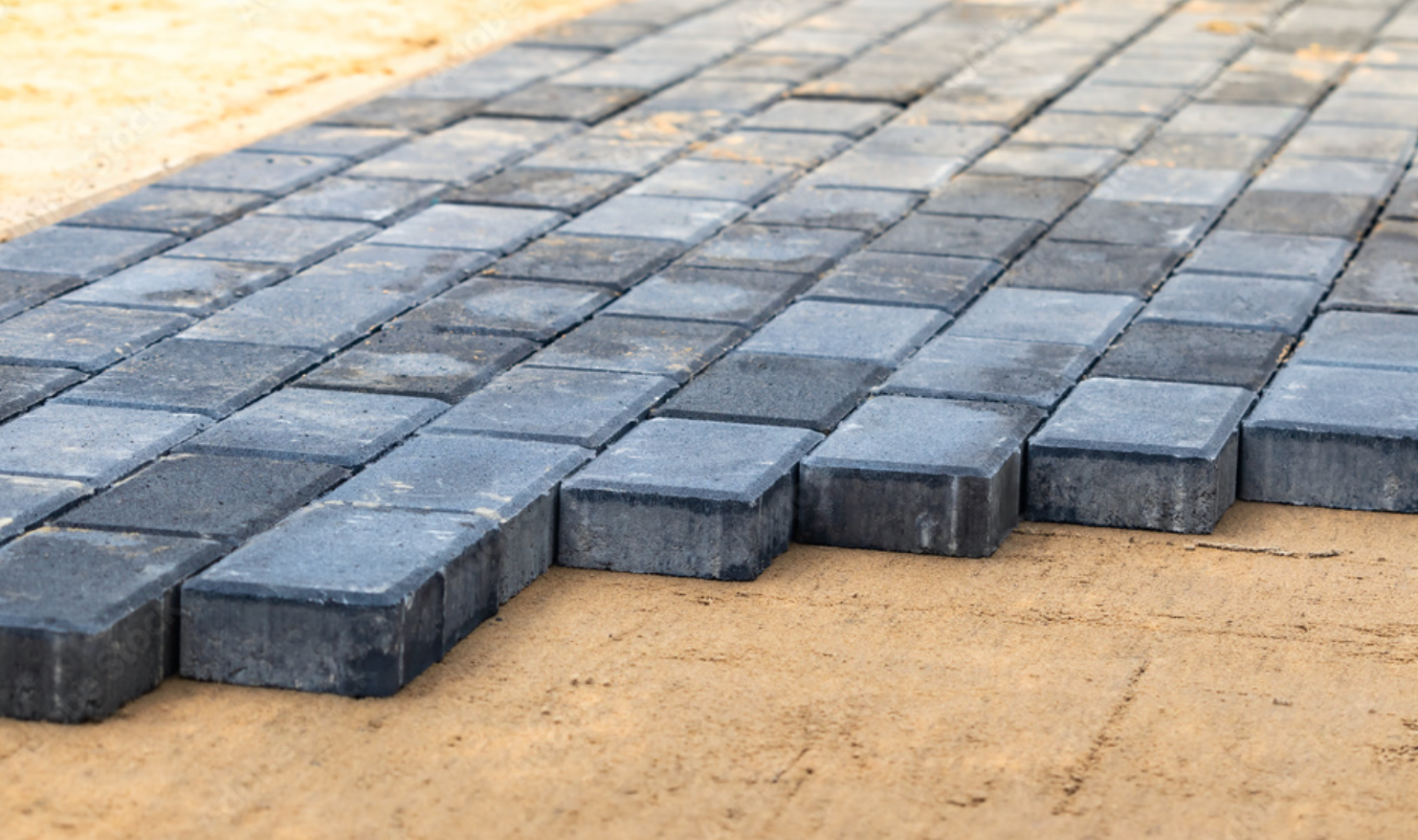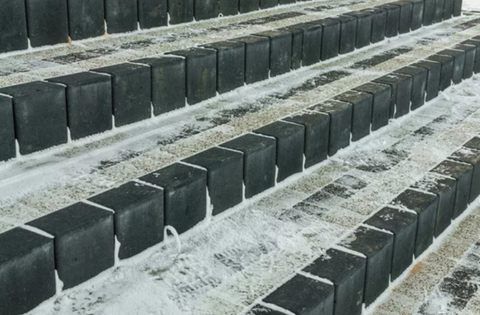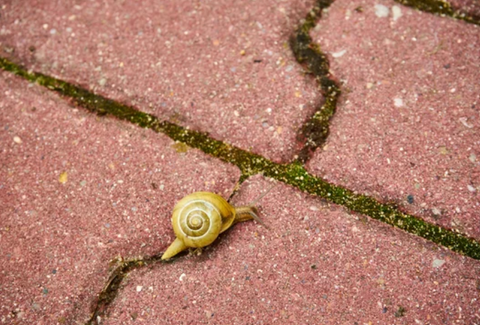
How to protect paving stones from dirt and increase their frost resistance?
Paving stones are a building material with a long history and tradition. Although it is less and less common outside the old towns of Polish cities, it is experiencing a real renaissance on private properties. Paving stones can be used to create a driveway for cars, and in the garden - atmospheric paths and recreation areas. It is an extremely aesthetic material that can take many forms. At the same time, it is exceptionally hard and resistant to mechanical damage. Paving stones are almost indestructible, but they must be carefully cared for to protect against moisture, frost and dirt. How to do it? We're already translating!

Protection of paving stones against rain, low temperature and dirt
There are several professional preparations available on the market for protecting pavement. It is exceptionally effective and definitely worth recommending Sikagard®-723 Pavement hydrophobic impregnation . It is a colorless liquid. It is a single-component aqueous solution based on silanes. It protects paving stones, but also paving slabs and other concrete substrates, and can be used outdoors and indoors, on horizontal and vertical surfaces.
Protection of paving stones against moisture
The very method of laying paving stones guarantees quite good protection of the surface against rain. There are corridors between the small cubes, thanks to which water (even during heavy downpour) is drained relatively quickly and effectively to the ground. Therefore, puddles do not form on paving laid on a flat surface. The material itself does not absorb water very quickly, but it is worth additionally impregnating it with a preparation from the Sikagard® line.
Sikagard®-723 Pavement creates a hydrophobic layer on the surface of paving stones – reduces the water absorption surface, but at the same time maintains the breathable properties of the material. This is of great importance because thanks to the hydrophobic layer, the paving stones do not absorb water at all minimizes the risk of fungi, mold and efflorescence . The paved surface will retain its aesthetic appearance for a long time.

Protection of paving stones against frost
Low temperatures and frost take their toll on every type of surface, causing cracks, defects and deformations. Nowadays, paving stones are produced in a process vibro-pressing – this is one of the most modern methods of thickening concrete mixtures. In this way, the tightness of the material is increased to strengthen its resistance to weather conditions. Nevertheless, additional protection of paving stones against frost is important. Thanks to this, the paved surface will look as great in spring as in autumn. The material will not deform or crack, so no repair work will be necessary.
Sikagard®-723 Pavement effectively increases the frost resistance of paving stones . In winter, you can simply clear the paved surface of snow, or you can also sprinkle it with salt or sand. Water-absorbing, frost-resistant impregnation layer it also prevents the formation of salt efflorescence .

How to protect paving stones from getting dirty?
The hydrophobic Sikagard®-723 Pavement coating prevents contamination of paving stones. The preparation binds dust and dirt that flow with water (e.g. during rain) and do not penetrate the structure of the material . With greater resistance to moisture, the risk of mold and fungi appearing, which is difficult to clean effectively later, is also reduced.
Sikagard 723 Pavement is also available resistant to detergents , so the paving stones can be washed from time to time using a chemical cleaning agent. It is worth using Sikagard® impregnation immediately on the newly constructed surface.

How to use a preparation that protects paving stones?
Sikagard - 723 Pavement is ready to use immediately after opening. The preparation should be applied in small amounts using a roller or brush , from bottom to top protected surface. The amount of liquid should be adjusted to the type and absorbency of the substrate. Before impregnating the entire surface, it is worth carrying out a test on a single block. Preparation it cannot flow on the pavement – it means there is too much of it! The consequence of applying too much impregnation may be the formation of paving on the surface white coatings , efflorescence. Typically, 0.2 – 0.35 l/m 2 is enough preparation in one layer.
After the first layer of impregnation has dried on the cube, which usually takes about two hours, the second and last layer should be applied. Tools must be washed with water immediately after use.
Sikagard®-723 Pavement is best used in sunny, warm, rainless day (ambient and substrate temperature: +5°C to +20°C). If the paving stones get wet by rain within two hours of applying the impregnation, the entire process must be repeated from the beginning.
How to clean old paving stones from organic deposits?
A paving stone surface that has passed its prime and has not been previously impregnated may no longer look as aesthetically pleasing. Organic deposits form on unprotected pavement (mosses, lichens, algae, mold fungi). Before impregnating old paving stones, they must first be thoroughly cleaned. A washer, detergent and water will effectively remove dust and dirt, but they will not cope with organic deposits and efflorescence. You need to use a specialized preparation, i.e. Sikagard®-715W .

Sikagard 715W completely removes mosses, lichens and algae from most substrates – both from paving stones and from other sensitive surfaces (concrete, brick, stone, wood, steel). You can also use it to clean the facade of your house, wooden gazebo or terrace. The Sika preparation is diluted in water and then applied to the substrate with a brush or sponge. After a few minutes, wash the surface as usual. Together all organic dirt will flow away with water and the cube can be impregnated so that this situation does not happen again.
What about factory-impregnated paving stones?
Many people believe that paving stones do not need to be additionally impregnated. If the absorbability of the paving is less than 6%, the material should be well protected against moisture. Paving on streets or squares is not regularly impregnated and it works well. However, in the case of paving stones in the driveway next to the garage or in the garden (i.e. in places used every day) it is worth providing the surface with additional protection and thus extend its life and aesthetic appearance.
Some producers of paving stones impregnate the material already at the production stage, e.g. using systems and technologies for additional hydrophobization of the stones. In this way, the cube is sealed inside, which effectively protects it against moisture and heavy rainfall. And here, however, it is worth applying an additional impregnating coating, thanks to which The cubes will practically not need to be cleaned .
FAQ
This is not necessary only if the cube has been impregnated at the factory. In practice, it is worth securing it additionally to minimize the risk of moss, fungi and mold. The impregnated cube does not deteriorate, is less dirty and looks new for longer.
An effective impregnation agent for paving stones is Sikagard®-723 Pavement. It creates a hydrophobic coating on the cube and at the same time increases its frost resistance. It prevents dirt from forming and extends the life of the paving.
Paving stones can be impregnated immediately after laying, if at least a month has passed since the production of the stones. If white efflorescence is visible on the cube, which indicates that the concrete is maturing, you should wait until they disappear on their own.
